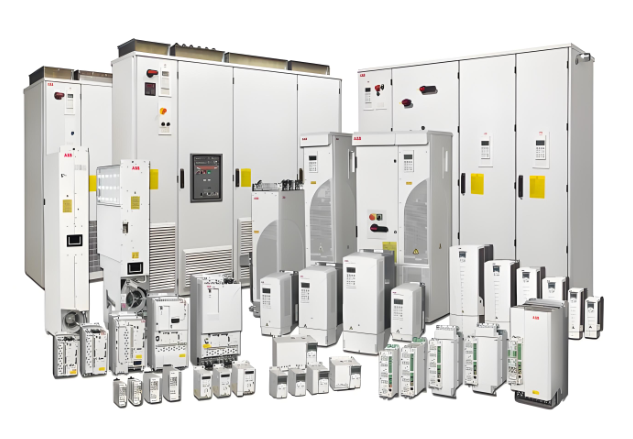ABB frequency converter is a device that can regulate motor speed and control motor operation, and is widely used in industries such as machinery, power, and chemical engineering.
When choosing an ABB inverter, multiple factors need to be considered to determine the most suitable model.
Firstly, it is necessary to determine the required power range.
The power range of a frequency converter is usually measured in kilowatts (kW), and the appropriate power range should be selected according to the application requirements.
If the motor power to be controlled is small, a low-power range frequency converter can be selected, while for high-power motors, a high-power range frequency converter needs to be selected.
Secondly, the input voltage and output current of the frequency converter need to be considered.
Select a suitable frequency converter based on the existing power supply situation and the required output current.
Generally speaking, the input voltage of a frequency converter can adapt to different power supply voltages, but the output current needs to be determined based on the load and shaft power of the motor.
Additionally, it is necessary to select an appropriate control method based on the application scenario.
ABB frequency converters have multiple control modes to choose from, including vector control, V/F control, etc.
Vector control can provide higher accuracy and response speed, making it suitable for situations that require high precision control; V/F control is suitable for general frequency conversion control requirements.
In addition, attention should be paid to the protection and safety functions of the frequency converter.
ABB frequency converters often have functions such as overload protection, short circuit protection, and over temperature protection, which can ensure the safe operation of the frequency converter and motor.
When choosing a frequency converter, it is possible to determine which protection functions are needed based on actual needs and ensure that it can provide sufficient protection.
Finally, the scalability and reliability of the frequency converter need to be considered.
Scalability refers to whether a frequency converter can support future expansion needs, such as whether it can easily add input and output interfaces, whether it supports network communication, etc.
Reliability refers to the quality and stability of the frequency converter, selecting reliable brands and products to ensure long-term stable operation.
In summary, when choosing an ABB inverter, factors such as power range, input and output voltage, control mode, protection function, scalability, and reliability should be considered.
Select the most suitable model based on actual needs and application scenarios to ensure the normal operation and performance of the frequency converter.





